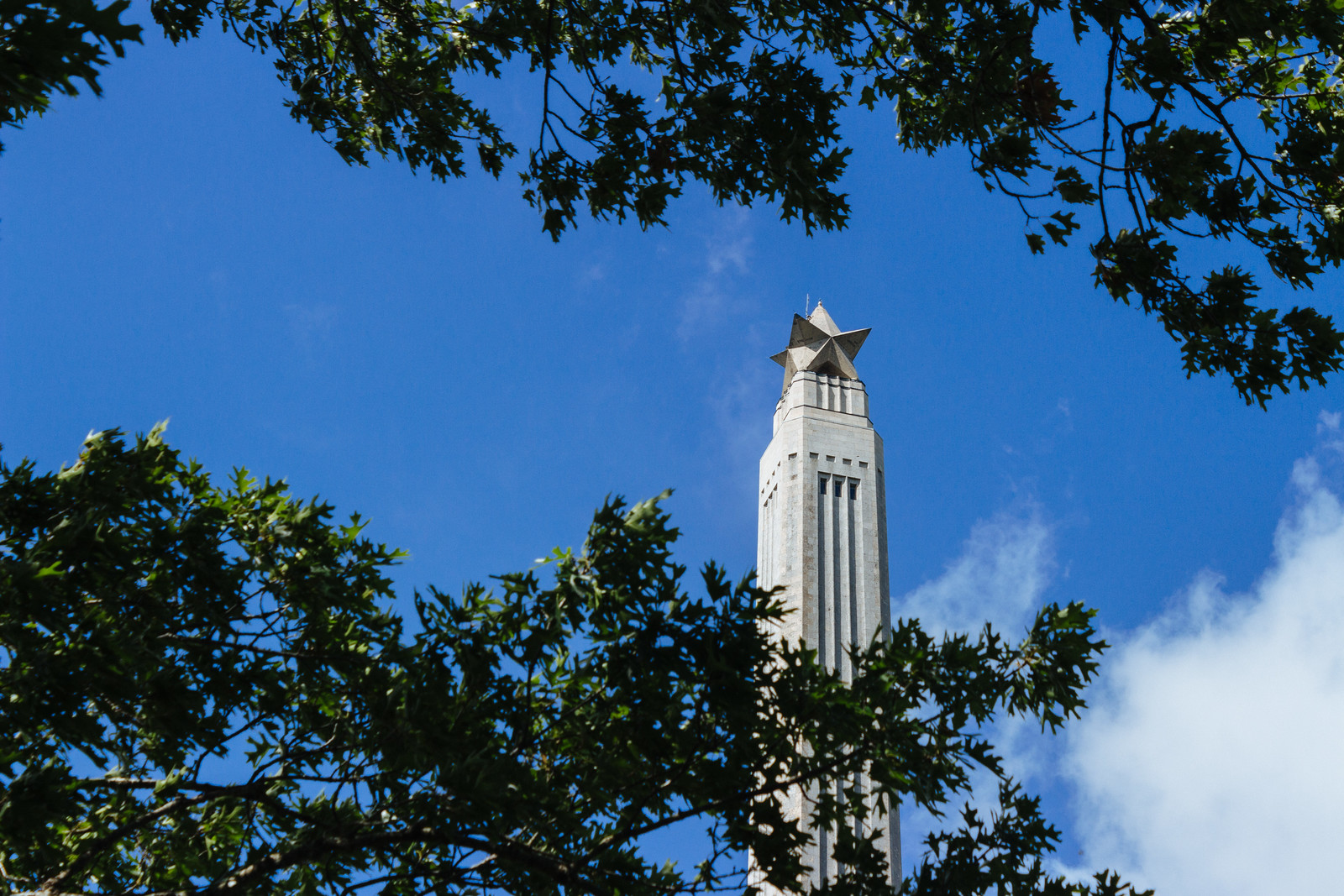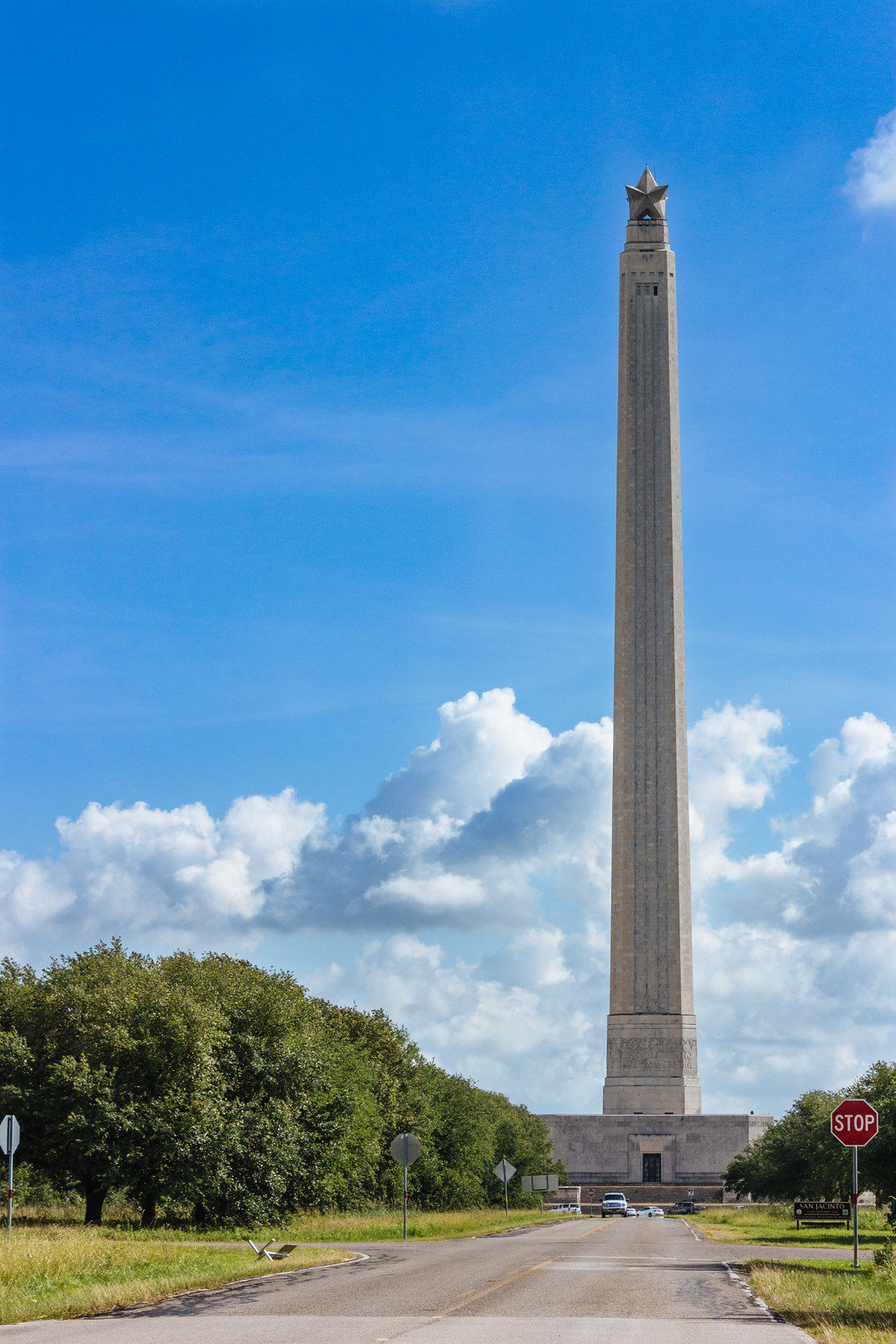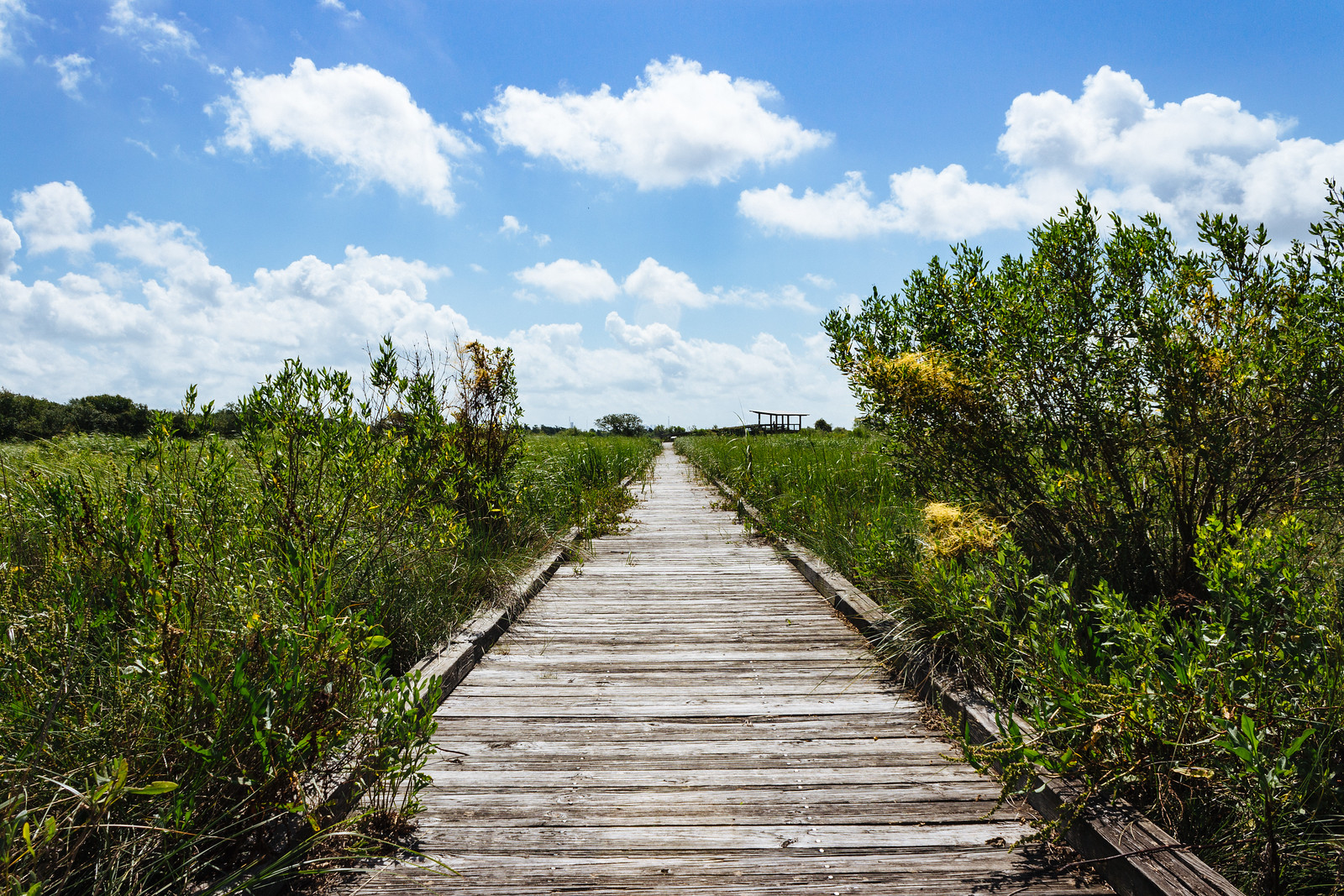Photo Post: The San Jacinto Monument near Houston, Texas
 |
| Monument through the trees |
“Remember the Alamo!”
Nearly every Texan is familiar with this battle cry from the Texas Revolution that refers back to the Battle of the Alamo in 1836 at modern-day San Antonio. Today, the Spanish mission of the Alamo is a major tourist destination not only for its historic Spanish Colonial architecture but also as a pilgrimage destination for Texans of all ages.
But as all fourth- and seventh-graders learn in Texas history class, the Texan rebels actually lost the Battle of the Alamo (and most of the defenders perished in combat). It wasn’t until one month later—at the Battle of San Jacinto near modern-day Houston—that they defeated the Mexican Army and gained independence from Mexico.
 |
| Approaching the monument |
A hundred years after this decisive battle, the state of Texas built a massive masonry column on the battleground just outside of Houston to commemorate this fateful event in Texas history. Handsome Art Deco fluting runs down the sides of the column and a three-dimensional Lone Star caps the whole structure. It’s taller than the Washington Monument in D.C., because everything really is bigger in Texas.
Stone inscriptions around the base bear a hagiographic account of the Texan movement for independence. Although they emphasize that the rebels fought to preserve liberty against the tyranny of a central government, they decline to share that one of the primary reasons for breaking away from Mexico was to preserve the ability to enslave other human beings. Texas history is messy.
 |
| Shadow of the monument |
But just because history is messy doesn’t mean we should shy away from it. While in Houston for Memorial Day weekend this year, I made a daytrip out to the San Jacinto Monument, now surrounded by the oil refineries of the suburb of La Porte. I fulfilled the dream of seventh-grader Trevor and rode the elevator to just below the monumental star, where I was treated to 360-degree views of the point where the Houston metro area meets the Texas Gulf Coast.
The skyscrapers of downtown Houston rose up from the haze, with the second skyline of Texas Medical Center further southeast also visible. The sprawl of single-family houses reached to the horizons. And all the pipes, smokestacks, and towers of oil refineries and related industries reminded me that Houston is at ground zero for climate change.
 |
| Houston-area oil refineries |
Back at the ground level, I had the opportunity to walk along footpaths and boardwalks that led around the battleground and into the nearby bayou, but I only spent about five minutes looking for birds before melting in the full midday sun.
 |
| Boardwalk on the bayou |
How to get there
If you’re coming from downtown Houston, hop on the Gulf Freeway (Interstate 45) south to the I-610 loop, which you’ll take for just a little bit before heading onto the La Porte Freeway (State Highway 225). After 10 miles, take the exit for Independence Parkway/Battleground Road and head north into a big oil refinery district. Follow the signs for the monument…you truly cannot miss this monument!For more information, visit the monument and museum’s website.

